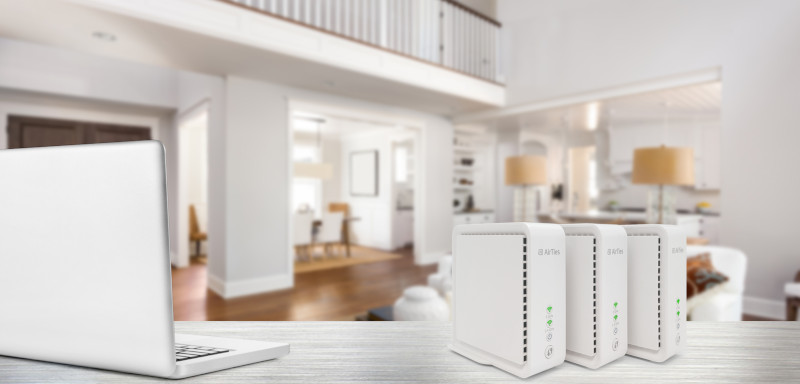Air 4930 is the latest access point from AirTies. It offers newer hardware and increased performance, and otherwise works mostly the same as Air 4920. Find the details here.
Air 4930 came on the market mid-year in 2019 as the latest model of wireless access point from the manufacturer AirTies.
What’s New?
Air 4930 has newer, more powerful hardware that supports some new functionality compared to Air 4920.
For the user, this primarily means a better range and higher speeds for more devices connected to their wireless network.
This also applies to the connection between the AirTies devices, meaning that you get a faster mesh Wi-Fi network.
Air 4930 <3 Air 4920
One of the most important things to note with this new model is that it is completely backwards compatible with the previous model. They can both be part of the same mesh network!
The firmware for Air 4930 and Air 4920 is being maintained in parallel.
Technical Comparison
| Air 4930 | Air 4920 | |
|---|---|---|
| CPU | Broadcom BCM4708C0 1 GHz ARM Cortex-A9 dual-core | Broadcom BCM47081 |
| Maximum speed | 2200 + 300 Mbps | 1300 + 300 Mbps |
| Antennas | 4 x 4 802.11ac (Wave 2) 2×2 802.11n | 3 x 3 802.11ac 2×2 802.11n |
| Zero-wait DFS | Yes | No |
| CPU offload on 5 GHz | Yes | No |
| May be used as a wifi repeater | No | Yes |
Zero-Wait DFS
Wi-Fi is not allowed to get interfere with radar signals. In order to be able to use wireless channels that are also used by radars, Wi-Fi equipment must have DFS, which is short for Dynamic Frequency Selection.
This functionality ensures that the access point automatically changes the channel to one where no radar signals are being transmitted, if it detects that a radar is operating on the same channel.
Both Air 4930 and Air 4920 have DFS functionality. Zero-wait means that this is applied without delay.
CPU Offload
Air 4930 has a dedicated chip that can free up processing power when the 5 GHz frequency band is in use. This contributes to improved performance.
Design
The form factor is the same as before, sleek and compact.
On the outside the access points mostly look the same, but the button on the front that was previously labeled “WPS” now has an icon instead. Its function remains the same.
Unchanged Accessories
Both models fit into the same brackets for wall mounting and use the same power supply unit (PSU).
